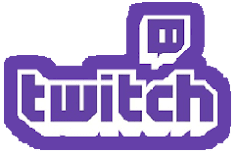By Ihosvani Rodriguez, Sun Sentinel
Following a quick trip to the restroom, radio talk show host Jorge Rodriguez sprints across his tiny Hollywood apartment in shorts and socks and sits down in front of a microphone and a cold beer.
Just as he is about to resume his show, Rodriguez gets distracted by a group of Jehovah's Witnesses outside his window. "Go away," he yells into a bullhorn pointed out the open window. "Give me your address so I can go to your home and pitch my belief system."
Without skipping a beat, Rodriguez leans back into the microphone connected to an arsenal of computers and resumes his angry rant against Republican presidential candidate Herman Cain. He burps out loud in midsentence.
Rodriguez, the former longtime producer for legendary South Florida radio bad boy Neil Rogers, has been broadcasting Uncle Neil's old brand of acerbic and shock talk radio. Only there is no radio.
Rodriguez is one of a small group of self-proclaimed "South Florida radio refugees" using their history to forge a new future in online radio — a bunch of old fuddy-duddies who have embraced technology to further the careers and passion for radio.
"The Internet has really taken a chunk out of the terrestrial radio market and is responsible for a lot of talented people losing their jobs," said Rodriguez. "But the same element responsible for us losing our jobs has also become the vehicle that has allowed us to continue our jobs."
With the development of smartphones, tablets and other Internet-capable devices, Rodriguez and others are banking that their shows will be at the forefront of a Web-based radio revolution.
In April, a joint study conducted by Arbitron and Edison Research discovered that one in five Americans are now streaming audio weekly and the number who listen to Internet radio in their cars has nearly doubled in one year, and now reaches an estimated 57 million people age 12 and older per week.
South Florida radio veteran Alan Michaels said America's new way of listening to radio has helped him find new homes for several now-defunct radio stations, including 103.5 SHE and Zeta-4.
"Nobody listens to the radio the same way anymore," said Michaels. "What we are doing is still providing that same old style and music, but delivering it a different new way thanks to technology."
Although anyone with a laptop can conceivably have his own radio shows, Rodriguez and Michaels say producing original content with a South Florida perspective is what sets their online radios stations apart.
After being fired from WQAM, AM 560, in 2009, Rodriguez has slowly been building an Internet radio network with at least 12 original online shows produced in South Florida.
Rodriguez's network, called SoFloRadio, is also home to progressive talk show host Nicole Sandler, who made headlines in April when she was arrested during U.S. Rep. Allen West's town hall meeting for allegedly being disruptive (charges were later dropped). There is also a wine and beer show on Thursday evenings and a sex and relationship show hosted by longtime South Florida radio personality Gina Martell.
The shows are streamed through different websites and cellphone apps, making it difficult to count the number of listeners, Rodriguez said.
He estimates 500-1,000 listeners any given hour.
Rodriguez said his business is "operating in the black" but he jokes his company is nonprofit.
Michaels owns and runs Shesonlyrocknroll.com, a nod to the old outlaw classic rock station, which launched during the late 1970s and went off the air in 1995.
"If you are from Miami, then you remember 103 SHE," said Michaels.
The station plays classic rock music 24-7, and several DJs from the era, including Cory James and Johnny Dolan, host their own music shows.
Dolan streams his shows from an apartment in Lauderdale Lakes.
The early success has led Michaels to launch similar music channels that carry the names and similar programming of now-defunct stations such as classic rock Zeta-4 and oldies WFUN.
Dolan and Michaels say they get calls and emails from South Floridians who now live in other parts of the world.
"We're still a hometown radio station," said Dolan. "But because of the Internet and technology, now we're able to deliver that worldwide."
Posted by Angel Espino



























0 Comments:
Post a Comment